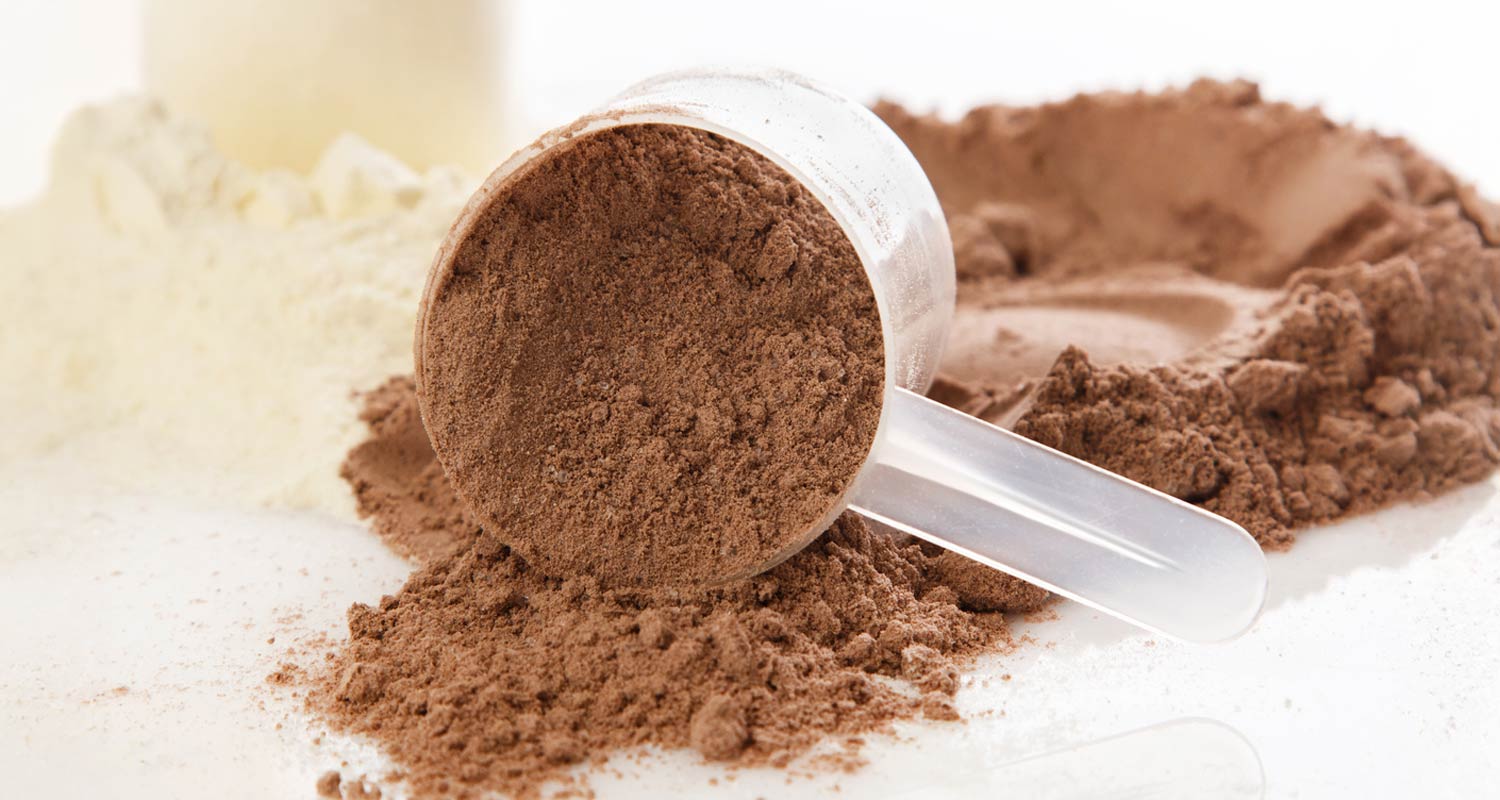Is Whey Protein Bad for You?

Article at a Glance:
- Whey protein is one of the most popular protein powders. It’s derived from the liquid part of milk that separates during the cheese-making process.
- Its reputation for supporting muscle growth and recovery is clouded by misconceptions that it can cause acne, hormone issues and lactose intolerance symptoms.
- Learn what’s actually true, so you can confidently use whey protein to support your health and wellness goals.
The conversation around whey protein is a mixed bag. While it’s known for supporting muscle tissue synthesis and support as we age[1], some see it as a supplement reserved for bodybuilders. There are even misconceptions that it may cause acne, disrupt hormones or trigger lactose intolerance discomfort. All this begs the question: Is whey protein bad for you?
Keep reading to uncover what’s fact and what’s fiction. Plus, get one step closer to reaping the powerful, research-backed benefits.

Misconception 1: Whey Protein Causes Acne
This misconception is a common one because dairy, the source of whey, has long been associated with skin concerns. But does whey protein cause acne?
Let’s take a look beneath the surface. Whey is the liquid part of milk that separates during cheese production. It’s then filtered and dried into the powder found in many protein supplements.[2] Because it’s a dairy product, some experts assume it has the same acne-triggering effects that certain dairy foods might have.
There is some scientific basis to the concern, as dairy may increase levels of insulin-like growth factor 1 (IGF-1), a hormone that can stimulate sebum production (your skin’s natural oil). When there’s too much oil, pores can clog and that’s when the dreaded breakouts happen.[3]
This doesn’t mean whey protein is a one-way ticket to acne, though. Some people may be more sensitive to dairy or have skin that’s already prone to breakouts due to genetic or hormonal factors. Overall, more solid research needs to be conducted before painting whey protein as the villain.

Misconception 2: Whey Protein Is Only for Bodybuilders
When you think of whey protein, it’s not surprising if a bodybuilder is the first image that comes to mind. After all, whey is praised by gymgoers for its many benefits, such as containing all nine essential amino acids and supporting muscle growth and repair.
Research also supports this, as evidenced by a 2023 study that looked at the role of whey protein in muscle hypertrophy. Thirty-two men were divided into two groups, one receiving 20g of whey protein and the other a placebo. They were then instructed to follow a resistance training regimen for 60 minutes, six days a week, over a period of four weeks. By the end of the study, the protein group saw a significant increase in muscle mass when compared to the placebo group.[4]
The benefits are real, but that doesn’t mean whey protein is exclusive to bodybuilders. At its core, it’s a smart choice for anyone looking to maintain strength with age. Like wrinkles, muscle loss is a natural part of aging. This starts as early as your 30s and can decrease as much as 3% to 5% per decade.[5] Supporting muscle synthesis is key to slowing this process, as it’s the process responsible for building new muscle proteins.[6] Supplementing with whey protein, whether it’s in a protein shake, smoothie or even your coffee, on a regular basis may help preserve the muscle you have.
Misconception 3: Whey Protein Is Bad for Lactose-Intolerant People
For many, whey protein and lactose intolerance are a cause for concern. Whey comes from milk, which means it can contain lactose, the sugar that can cause gas, bloating and discomfort.[7] If you have a milk allergy, it’s advised to skip whey entirely. But if you’re just lactose intolerant, you can weigh your options.
For one, consider switching to a whey isolate instead of a whey concentrate. Whey isolate goes through an extra filtration process that removes most of the lactose, making it much easier to digest. An even better option? Look for lactose-free whey protein.
Here are some great protein alternatives:
- Collagen protein
- Egg protein
- Pea protein
- Hemp protein
- Soy protein
Misconception 4: Whey Protein Disrupts Hormones
The idea that whey protein interferes with hormones may stem, in some part, from concerns about its potential effects on inflammation. It has been shown to be immunomodulating, meaning it can affect an array of inflammatory markers in different ways.
Inflammation, especially when long-term, can disrupt sex hormones like estrogen and testosterone by throwing their levels out of balance.[8] Currently, research on whey’s impact is ongoing, with some showing it to have little to no negative impact at suggested protein intake levels, and other research showing it may have a positive impact.[9]

The Benefits of Whey Protein
Now that we’ve cleared up the misconceptions, let’s focus on what’s actually true. These benefits help silence any questions about “Is whey protein bad for you?”
- It’s a complete protein: Whey protein contains all nine essential amino acids, which are nutrients your body can’t make on its own. These amino acids play a key role in cell repair, muscle synthesis and overall health.[10]
- Weight management support: Whey protein may help support weight management while preserving lean muscle. In a 12-week study of older adults with obesity, those who consumed 27g-29g of whey protein saw some weight loss and better strength—all without losing muscle.[11] It may also help keep you fuller for longer, at a lesser amount, which may lead to healthier food choices.
- Boosting daily protein intake: Protein is essential for feeling your best, yet many people fall short of the recommended daily amount (0.8 grams per kilogram of body weight, or 0.36 grams per pound).[12] Whey protein can be taken at various amounts to support whichever goals an individual may have.
Sign up for early access to sales, product launches, the latest Bulletproof news and more!



